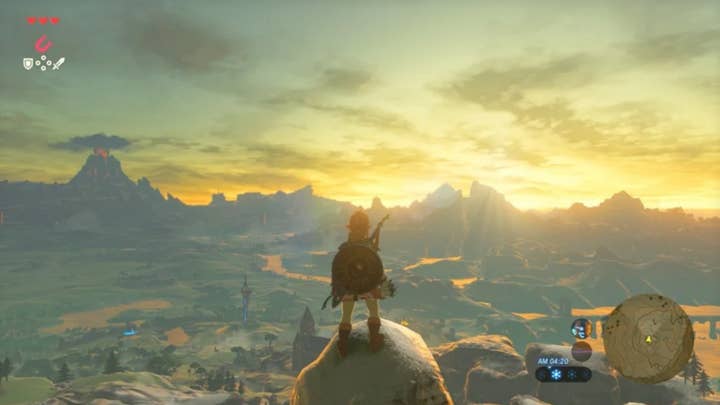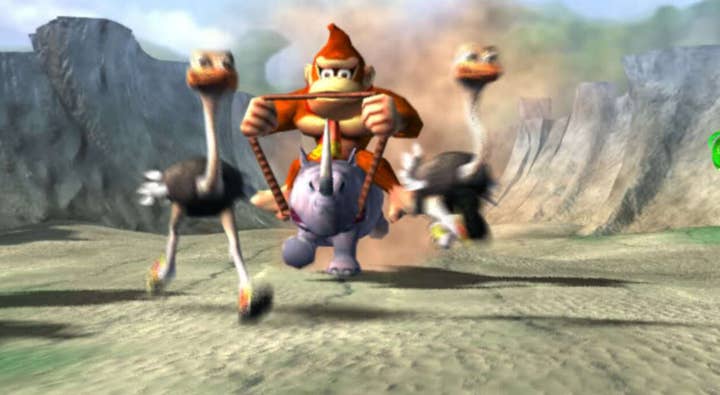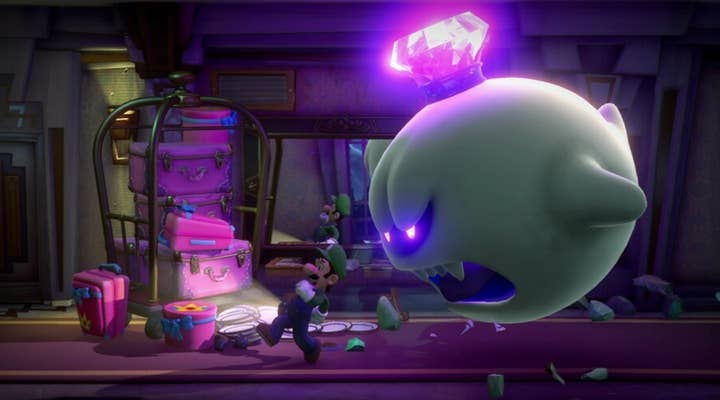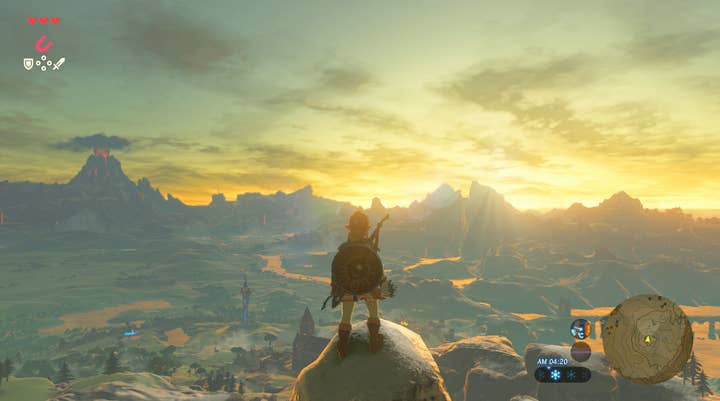Nintendo doesn't want to buy companies, but it may have to | Opinion
Nintendo doesn't do mergers and acquisitions. But as the industry consolidates, it may need to protect what it's got
"When we say we do not do [mergers and acquisitions], there are always exceptions," said Nintendo's legendary CEO Satoru Iwata back in 2008.
"We are not against M&A if Nintendo can absorb the real value of the company. However, in most cases, the value of software developing companies is attached to its people, not the company, which is merely a vessel for its people. So, when we purchase a company, we can purchase the vessel, but we cannot necessarily purchase the contents. Even if we should compete with others to purchase a software company, although we might be able to increase the sheer number of our developers and to gain a short-term result, we do not think it will do good for us in the long run. We have been repeatedly saying that we will not do that kind of M&A."
Iwata's comment was part of an investor Q&A when he was asked to explain the decision for buying the developer Monolith Soft from Bandai Namco.
"Nintendo may need to open its recently inflated wallet, but don't expect it to break its philosophy to do so"
"Mr Sugiura, the president [of Monolith], and Nintendo have a long-term relationship," Iwata explained. "How Mr Sugiura thinks is close to how Nintendo thinks. The software Mr Sugiura would like to create is in line with what Nintendo would like to have for its platform. So, we thought that Nintendo should support this idea, and we decided to take action.
"If certain conditions are met, we may do the same thing in the future. However, we will be very careful and selective, so that we will only partner with people with whom Nintendo can create a long-term working relationship."
Monolith is a unique acquisition in that it was one Nintendo seemingly wanted to do, rather than felt obligated to do. As Iwata says, Nintendo is cautious and will only acquire those where there is a clear, long-term future.

The best example of Nintendo's general reluctance can be found at the turn of the century, Nintendo owned 49% of its long-term development partner Rare, which had created several original hit N64 games (such as Banjo Kazooie and Goldeneye), alongside acting as custodians to Nintendo's Donkey Kong IP.
Rare founders Chris and Tim Stamper wanted to sell the business, and Nintendo -- due to its stake -- was given the first option. Considering Rare's success on the N64, plus the fact the studio was working on a string of first-party Nintendo exclusives (including three Donkey Kong/Diddy Kong games), it seemed inevitable Nintendo would buy the remaining 51%.
But it didn't. It said no. The Stampers were surprised (like most of the fanbase) and Rare ended up in the arms of Nintendo's newest rival: Microsoft.
Nintendo was clearly happy to continue working with Rare, but this was a big studio, with a unique culture that was working on numerous projects, some of which fit with Nintendo's style, and some of which did not. There was uncertainty over whether the Stampers would hang around long after the acquisition (they lasted five years in the end), and whether the talent would remain. Therefore, Rare was not destined to be an "exception" to the rule that Nintendo does not do mergers and acquisitions.
The biggest reason Nintendo occasionally spends money on a company is because it feels it must. Nintendo was a major investor in Retro Studios back in 1998, but after being dissatisfied with the conduct of its management, decided to buy the studio outright (for just $1m) in an effort to save it just four years later.

In January last year, Nintendo was notified by the owners of Next Level Games that they were looking to sell the company. Next Level is a major dev partner to Nintendo, having developed the last two (hugely successful) Luigi's Mansion games and the Mario Strikers series. Faced with a similar situation to the one it had with Rare, Nintendo this time decided it needed to spend the money to secure the team.
Nintendo's statement on the acquisition left no doubt as to why it had bought Next Level. It was because the developer was looking to be bought, not because Nintendo was looking to buy. It was a defensive acquisition, not an offensive one.
Like many in video games, Nintendo is enjoying a profitable time. Its Switch platform is the most popular console in the world and its games are selling in the tens of millions. The result is that Nintendo is spending money, in fact it's just committed almost $900m to expanding its development teams. However, unlike the rest of the industry, Nintendo isn't drawing up a shopping list of developers.
Iwata may not be with us anymore, but current president Shuntaro Furukawa clearly holds the same values. In a quote about acquisitions reported by Bloomberg this month, he said: "Our brand was built upon products crafted with dedication by our employees, and having a large number of people who don't possess Nintendo DNA in our group would not be a plus to the company."
Culture and philosophy are important to Nintendo. It may want more development resources, it may even want more IP, but it's all about the right people and the right brands. When a buyout happens, the typical concern is what will this new parent company do to its latest acquisition? Nintendo's worry is the reverse: what would buying this business mean for its own unique way of working?

There are ways to mitigate this, of course. Microsoft has its own 'limited integration strategy,' which it first adopted when it bought Minecraft developers Mojang. This is where a company is left largely to its own way of working, and Microsoft only gets involved when it's wanted. Sony, too, has just acquired Bungie with the promise to keep it 'independent.'
Nintendo does this in its own way. Hal, Intelligent Systems and Game Freak are three examples of games developers that are deeply connected to Nintendo, including via arrangements around the games they make. The difference between these studios and Bungie, however, is that they're genuinely independent. Nintendo doesn't own them.
So the current consolidation climate is not one Nintendo will welcome. It doesn't want to buy companies, but it knows it may need to now that some studios are planting 'for sale' signs for the likes of Microsoft, Embracer, Tencent and Sony to see.
Nintendo has numerous close third-party relationships. Some of last year's big Switch games were developed externally by the likes of Capcom, Bandai Namco, Sega, MercurySteam, and Ilca, while Niantic developed Nintendo's latest mobile game Pikmin Bloom. This year the company's line-up includes big exclusives created by Ubisoft Paris, Tecmo Koei, WayForward, PlatinumGames and Square Enix. These are all businesses that could find themselves under new ownership with different views on what they should be doing.
Nintendo may need to open its recently inflated wallet, but don't expect it to break its philosophy to do so. These companies are just vessels after all. Nintendo isn't looking to acquire IP to bolster a subscriptions service, or buy up live service expertise. It's highly unlikely to spend big money on a major publisher with multiple big teams. For Nintendo, it'll be about keeping hold of the people that fit with its ethos.
For those that don't completely fit the remit, like with Rare back in 2002, Nintendo will simply let them go. No matter how successful they may have been.

